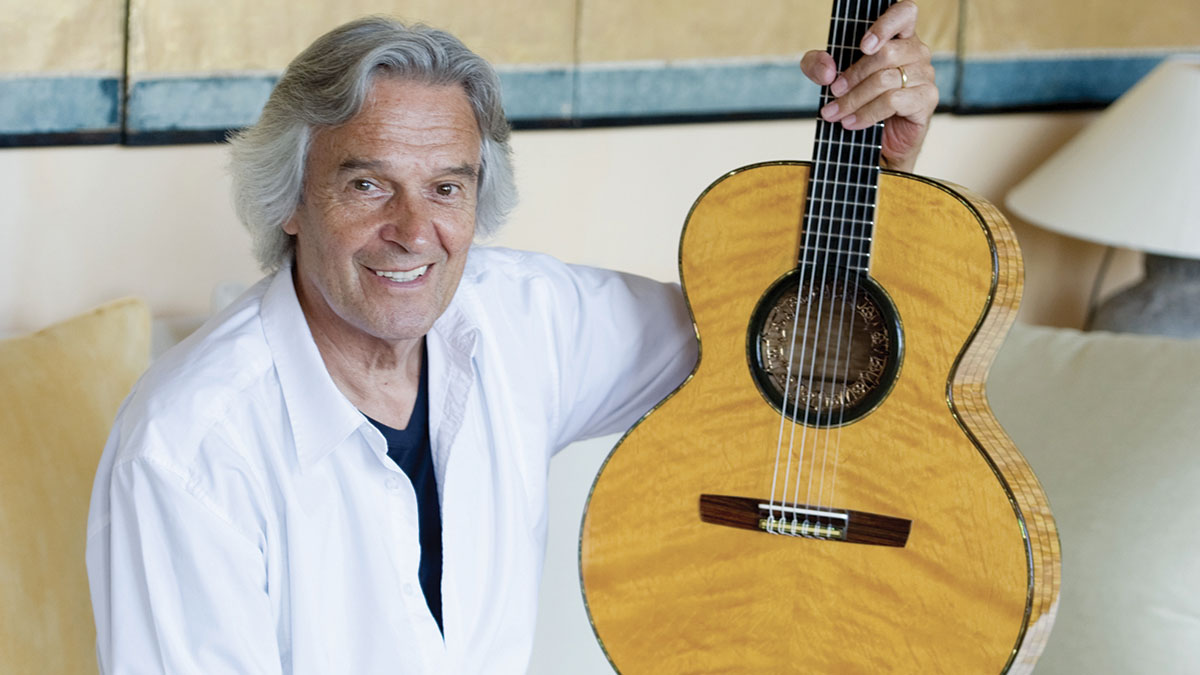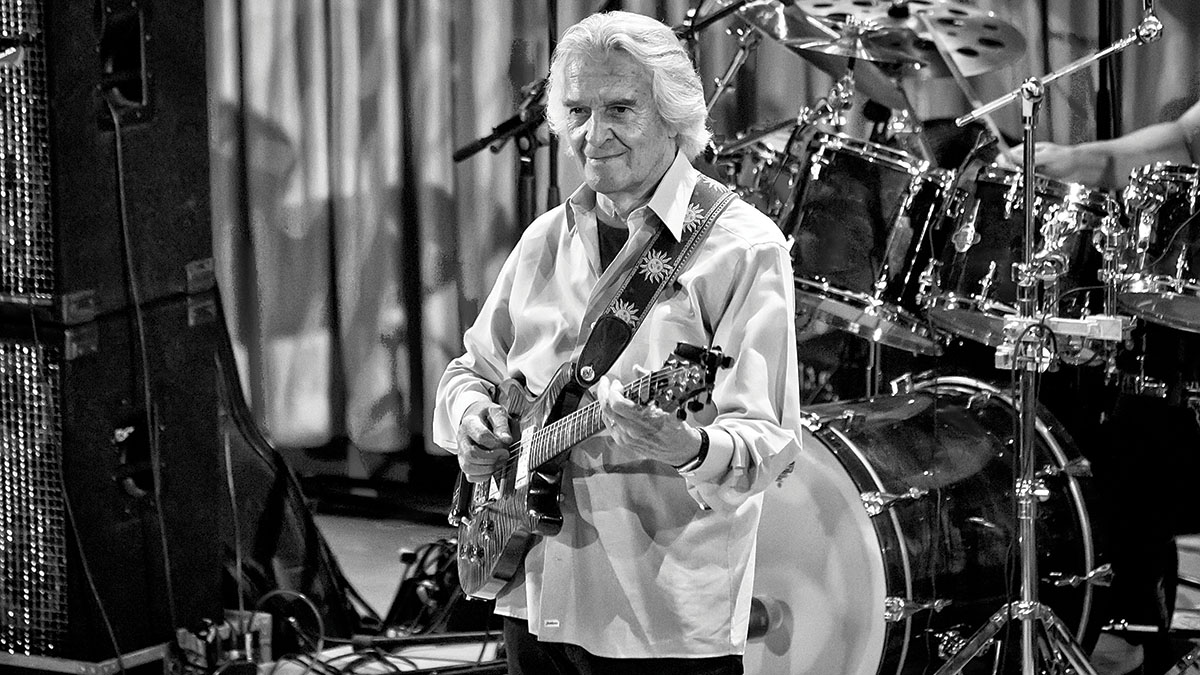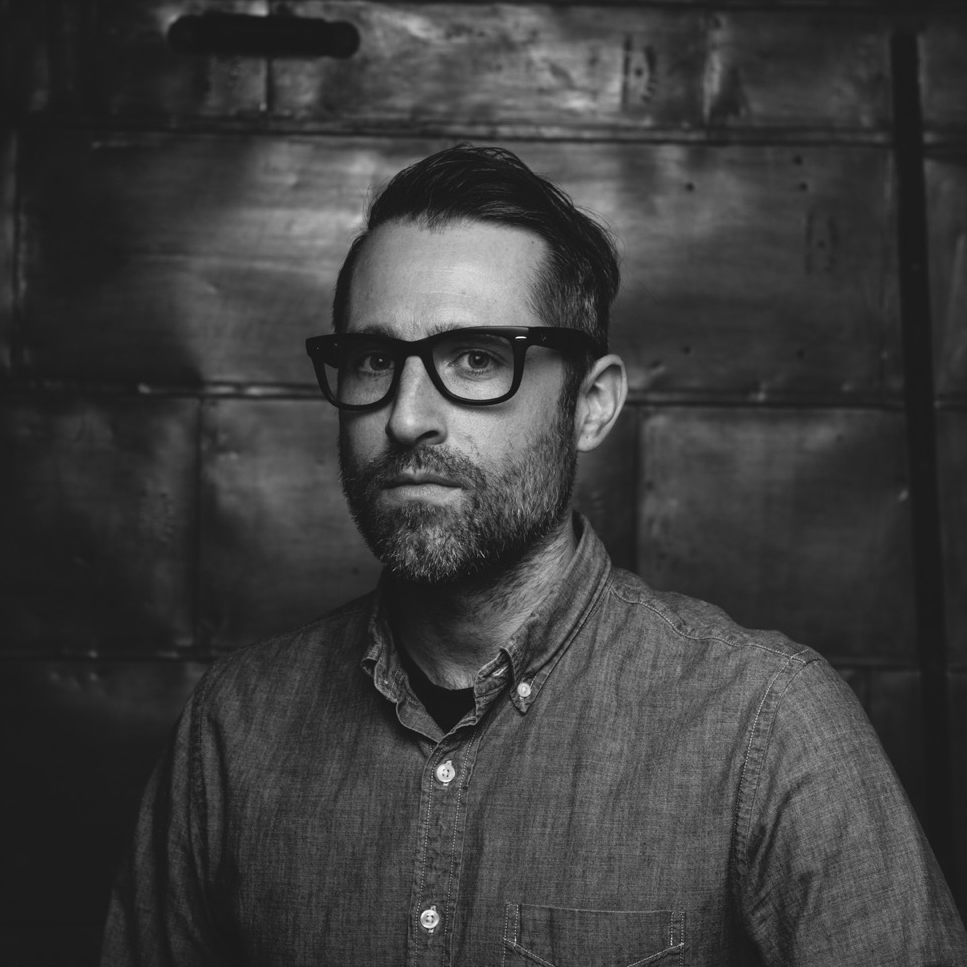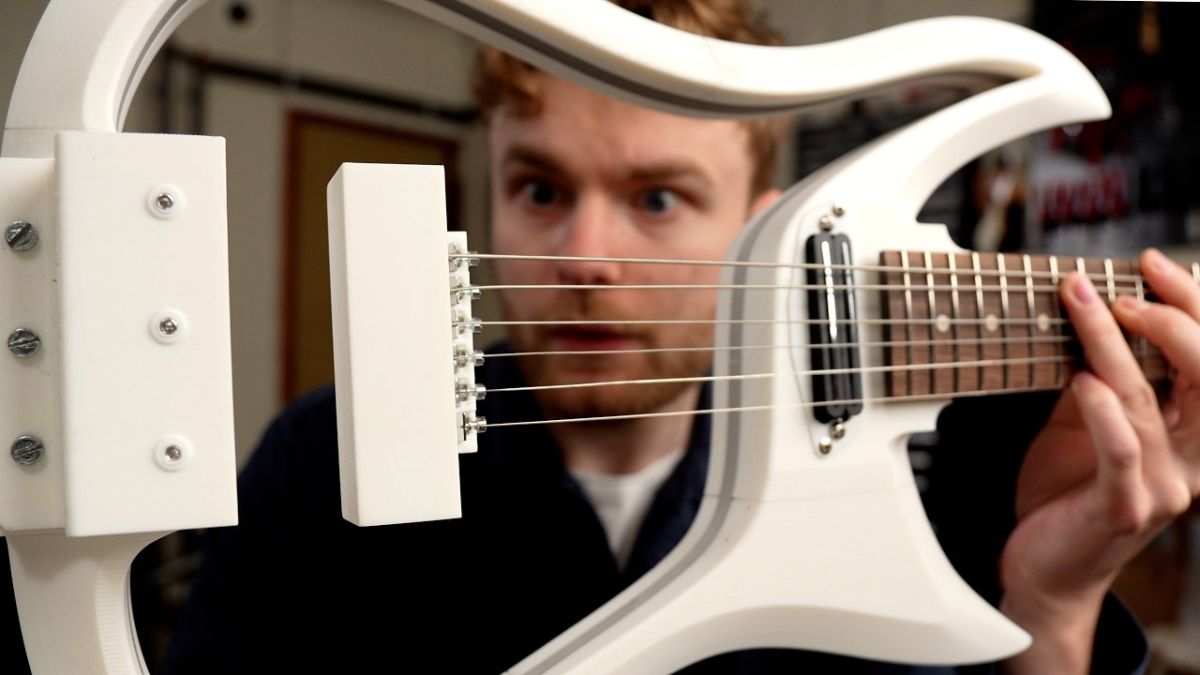John McLaughlin: “For me, music is a form of meditation and self-discovery, especially if you’re improvising”
The jazz/fusion great on breaking the law, spirituality and music, and finding freedom and inspiration in the sounds of his breathtaking new album, Liberation Time

The coronavirus pandemic has brought with it countless forms of hardship: from catastrophic to tedious and everything in between. It’s affected the health, finances and emotional well-being of hundreds of millions of people across the globe.
It’s forced many of us to fundamentally change the way we worked, cared for families, shopped for food, went to school, socialized, created music and so much more. For John McLaughlin, pandemic-packed 2020 was also the year he got busted… for riding his bicycle.
The British guitar virtuoso weathered that year’s turbulence in Monaco, where the 80-year-old has lived with his family for decades. When the jazz-fusion great wasn’t practicing guitar, McLaughlin would combat his cabin fever by taking a spin on his bike. It was on one of these stress-reducing treks that he found himself on the wrong side of the law.
“During the first lockdown, you were allowed to go 1 kilometer from where you lived, and [stay] out for one hour,” he says. “I was on my bike, and I ended up in France, because France surrounds Monaco. I was about 500 meters [over the limit] and I got fined. I had to pay 135 euros for 500 meters! [Laughs] That’s terrible. So I tried to stay clean after that.”
It’s mid-2021 when McLaughlin recounts this story to Guitar World. He can laugh about it now, and he’s also quick to acknowledge that a traffic ticket pales in comparison to the many tragedies people have experienced throughout the ongoing Covid pandemic. But that day when he got pulled over, he was irate – a feeling that only continued to grow as the stay-at-home orders dragged on and restrictions tightened throughout 2020.
His frustrations reached their “boiling point” in September. But instead of hopping on the bike, he picked up his custom PRS and “let it all come out in music”. The benefits of these sessions were twofold: not only did they provide the catharsis he craved, but they also laid the groundwork for his latest full-length album, the aptly titled Liberation Time.
Within the space of three weeks I had all the music. It burst out of me
“Within the space of three weeks I had all the music,” he says. “It burst out of me. Instead of anger, it was music.”
All the latest guitar news, interviews, lessons, reviews, deals and more, direct to your inbox!
Social-distancing mandates forced McLaughlin to record the entire album remotely. It was a new experience for him – trading tracks online and figuring out how to create a free-spirited musical collaboration with players all across the world. Luckily, he chose an assortment of straight-up killers to help him in this effort.
Liberation Time’s lineup includes McLaughlin’s current ensemble 4th Dimension – Gary Husband (drums/piano), Etienne Mbappé (bass), Ranjit Barot (drums, Konokol vocals) – plus drummers Vinnie Colaiuta and Nicolas Viccaro, bassists Sam Burgess and Jerome Regard, pianists Oz Ezzeldin and Roger Rossignol, tenor saxophonist Julian Siegel and J.M. “Kiki” Aublette contributed on bass and drums.
“The audio files would come back, and I’d put the headphones on and listen to the guys playing and I wouldn’t be separate from them,” McLaughlin says. “The track Right Here, Right Now, Right On – Oz Ezzeldin recorded that in Cairo. The drums were done in Paris. Saxophone was done in London. It’s nuts! But I put the headphones on, and we were all together in the same room… I was inspired and very lucky to have these great guys playing.”
A key component to Liberation Time, as well as McLaughlin’s approach to music and life in general, is communion with “The Spirit” – an expansive practice that allows him to experience the interconnection between, quite literally, everything in existence.

“For me, music is a form of meditation and self-discovery, especially if you’re improvising,” he says. “To know yourself… is an imperative in life for me… And that is what happens when you meditate. You discover nature and consciousness is one thing… any separation is an illusion. We’re all connected beyond any question of a doubt. Everything and everyone… especially consciousness.”
McLaughlin says he’s been cultivating his spiritual practice since the ’60s and believes it has direct, practical applications when it comes to creating art and music.
He’s brought that open-minded, collaborative approach to many influential projects and notable sessions over his five-plus-decade career: from giving Jimmy Page guitar lessons and jamming with Jimi Hendrix to performing with Graham Bond Quartet, Miles Davis, Santana, Jaco Pastorius, Mahavishnu Orchestra, Chick Corea, Shakti and many more.
Liberation Time stands as a testament to the power of that spiritual connection – and to McLaughlin’s still-stunning technical prowess and expressive six-string abilities.
The guitarist’s articulate single-note phrasing and fluent bursts of alternate-picked 16th notes shine throughout the album’s songs, which range from jazz-inflected jams (Right Here, Right Now, Right On) and exciting guitar/drum workouts (Liberation Time) to soulful R&B/blues excursions (Lockdown Blues) and high-flying, rhythmically tense compositions (As the Spirit Sings). The multi-instrumentalist McLaughlin even shows off his piano skills on a couple emotionally evocative interludes (Mila Repa, Shade of Blue).
In the wide-ranging interview below, McLaughlin opens up about the unique process of creating Liberation Time, how he maintains his prodigious guitar chops, the role spirituality plays in improvisation and much more.
The pandemic has turned the world on its head for the last year-plus. Has the guitar been a good outlet for you during all the uncertainty?
“I play the guitar every day, two or three hours sometimes. Because it’s very good for my mind, for my spirit and music just makes everything right.”
Do you follow a specific guitar workout to keep your technique at such a high level?
“No. Well, you could say yes… What I do is I warm up; then I’ll say, 'What do I want to be free on today?' At the moment, I’m [playing] a piece that we recorded a few years back called Trancefusion [from 2012’s Now Here This], which has got tonality but you can drift out of it. [It’s in] 4/4, but then it’s got a long bridge that is in 9/4.
“It’s got a more specific harmony. Sometimes I’ll replay that eight or nine times, because I want to find more things inside myself relative to that piece. How can I move harmonic extensions in the 4/4 section while keeping the integrity? Not just playing out, because it’s out. But where you move in an aesthetic way musically.”
Liberation Time’s liner notes mention your “strong connection to the spirit”. New guitar players are always looking for their “voice”. Did seeking the spirit help you with this?
“Absolutely. [But] to find your voice… If you’re not in it for the longterm, don’t bother. [Laughs] Because you never get to the end, young players! Believe me. [Laughs] The thing is, your question is kind of loaded. Because the minute you talk about The Spirit, you’re talking about spiritual development: the development of the human person.
“If you don’t know who you are, I think you’re in a dream. Not that the dream is bad; dreams are great. But to know yourself is an imperative I discovered in the 1960s. I had no idea who I was, what this mystery of existence is in this unbelievably fathomless infinite universe. What am I doing? What is everybody doing?
“Then you come back to playing. Jazz demands that you improvise over structure. You have to be able to articulate tempo, harmony and innate sense of melody in the improvisations. Now when it’s time to solo… What are you going to say? To me, the answer is very simple. The only thing we can say is the story of our life: how deeply do you feel about the music you’re playing and the people you’re playing with…
Jazz demands that you improvise over structure. You have to be able to articulate tempo, harmony and innate sense of melody in the improvisations
“And can you articulate the depth of that feeling with the notes and the harmony. It looks like an insurmountable problem. But it’s not, thanks to inspiration. However, inspiration is a question of perception. And perception can be cultivated in meditation. This is why I bring the two together.”
Earlier, you mentioned striving for freedom in your playing. How difficult was it to get free with the other musicians when you weren’t able to record with them in the same room?
“I would send out the scores and the demos to all the musicians with simple instructions: listen to what I’ve done but take it and be yourself. Don’t play it like I played it, unless it’s what you want. Any improvisation, be totally yourself. I’m not interested in what you think I might like. I want you to be who you really are… So that gave them a lot of freedom.”
Were there any tracks that you redid after hearing what the guys sent back?
“I did a lot of pre-guitar work, of course, even improvisation, and the melodies and the arrangements. However, sometimes the file would come back from the players – and they were killing on it! [Laughs] I would have to redo my part because they took the character of it and developed it and provoked me to where I had to redo my part to be on [their] level… I had to redo Lockdown Blues, Singing Our Secrets, Right Here, Right Now, Right On. They came back killing! I had to step up to the plate.”
What gear did you use on Liberation Time?
“I used my PRS [custom-built Private Stock McCarty Violin guitar] that Paul gave me years back. What a beauty. I just love it. I don’t use basic amps anymore. I like the preamps… I’ve been using the Line 6 HX Stomp, the programmable preamp. That is a real beauty…
“I’m also a fan of the old Mesa/Boogie V-Twin [tube preamp pedal] and the Seymour Duncan Twin Tube Classic. And it’s not on the album, but I also use the Zendrive II preamp. That’s me, that’s what I like.”
I’ve gotta ask about that melodic guitar synth sound on Singing Our Secrets…
“That’s a Logic-basic sound that I’ve been tweaking for 20 years. But it’s not triggered through a regular MIDI device… It’s a simple thing called Migic. It’s an app that costs you about $49 or something and it’s really quite phenomenal. It’s only mono. You have to tweak it to the point where the input and the triggering sensitivity correspond to your playing… If you want to go synth, I recommend it.”
Do you plan to bring Liberation Time to live stages after the pandemic restrictions lift?
“Oh yeah… Can you get me a gig, man? [Laughs]”
[Laughs] Well, I’m in Brooklyn. I know you had your final U.S. tour a while ago. Do you think you’ll play the States again?
“I don’t know, it’s really hard to say. My whole musical world has been in complete chaos in terms of touring, because there just isn’t any this year… But I shouldn’t be complaining because there are hundreds of millions of people in dire straits, musicians too. So I don’t know. And at my tender age, we’ll just have to see what the gods have in store for me.”
- Liberation Time is out now via Abstract Logix.
Brad is a Brooklyn-based writer, editor and video producer. He is the former content director of Revolver magazine and executive editor of Guitar World. His work has appeared in Vice, Guitar Aficionado, Inked and more. He’s also a die-hard Les Paul player who wishes he never sold his 1987 Marshall Silver Jubilee half stack.

